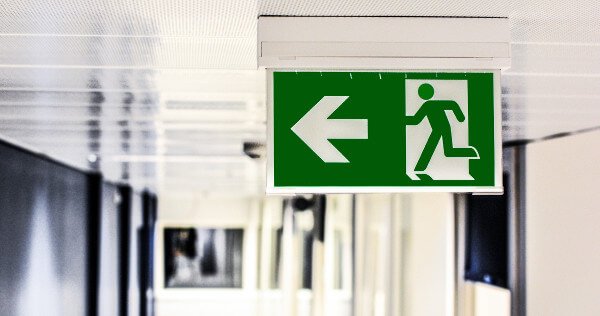Making Plans in Case of Emergency
 September is National Emergency Preparedness Month, so we're sharing some tips about what you can do in advance to be prepared. While it's important to have a plan ready if you are at home during an emergency, it's also important to think about what you would do if one happens while you're at work. The following tips are a good way to get your workplace emergency plan started. Also, check out the resources at the end of this post to help you learn more about how to stay safe during an emergency.
September is National Emergency Preparedness Month, so we're sharing some tips about what you can do in advance to be prepared. While it's important to have a plan ready if you are at home during an emergency, it's also important to think about what you would do if one happens while you're at work. The following tips are a good way to get your workplace emergency plan started. Also, check out the resources at the end of this post to help you learn more about how to stay safe during an emergency.
Be informed
Knowing the type of emergencies you may experience and what you might expect can give you important information about when to prepare and what resources you might need. For example, you may live in a region prone to hurricanes or one that experiences wild fires or major snowstorms.
Some emergencies, like hurricanes or tornadoes, may require evacuation. Knowing the best routes to safety, both from home and from work, can help you get to a safe place faster. Others, like snowstorms may require you to stay in place and make sure you have adequate supplies of food or medicine.
At work, familiarize yourself with safety protocol and emergency exits so that you know where to go and what to do if something, like a fire, happens in the building. If you've disclosed your disability to your employer, you may want to discuss any arrangements you may need to have in place, such as a plan for evacuation if you can't use the stairs. Or, if you're blind or have low vision, your employer may help you identify exit routes.
Consider your needs
In addition to electricity, food and water, consider what resources you might need and use on a regular basis, including prescription and non-prescription medications or electronic medical devices. For example, if you use a hearing aid, make sure you have extra batteries on hand. Creating an emergency kit may help you remain calm and take care of your needs during an emergency.
If your disability affects your ability to communicate, prepare for at least one alternative option, like a handheld dry erase board or a pad of paper and a pen, to make sure you can explain your needs to emergency personnel or anyone else you might encounter during an emergency. Other disability-related items for your kit may include a spare set of eyeglasses or an extra cane or crutches. If you use a power wheelchair, consider a lightweight battery charger or a manual wheelchair if you're able to use one. If you keep a set of backup household batteries for flashlights or other small electronic devices, at work, make sure you have a fresh supply. And be sure to check the charge on your cellphone or other handheld device regularly.
If you take a prescription medicine on a regular basis, talk with your doctor or pharmacist about what you should do in the event of an emergency. You'll want to know how to get your prescriptions if an evacuation takes place at work.
Make copies
It's a good idea to keep your health insurance information with you, but you may find yourself in an emergency situation without it. Make copies of this information for a trusted relative or friend to access if you don't have the originals during an emergency. This may help you receive medical care and medications more quickly.
More tips for preparing
Being prepared is a year-round responsibility, but knowing that you have your needs taken care of can give you some peace of mind and keep your health in check in the event of an emergency. To be prepared and help yourself stay safe during an emergency at work, check out the following resources and share them with your employer:
- Office of Disability Employment Policy: Emergency Preparedness
- Everyone Must Be Prepared for Emergencies
- Ready.gov
- Diabetes Disaster Plan
Ticket to Work
Social Security's Ticket to Work (Ticket) program supports career development for people ages 18 through 64 who receive Social Security disability benefits (SSI or SSDI) and want to work. The Ticket program is free and voluntary. It helps people with disabilities move toward financial independence and connects them with the services and support they need to succeed in the workforce.
Learn more
To learn more about the Ticket program, call the Ticket to Work Help Line at 866-968-7842 or 866-833-2967 (TTY) Monday through Friday, 8 a.m. to 8 p.m. ET. Ask a representative to send you a list of service providers or find providers on your own with the Ticket program Find Help tool.